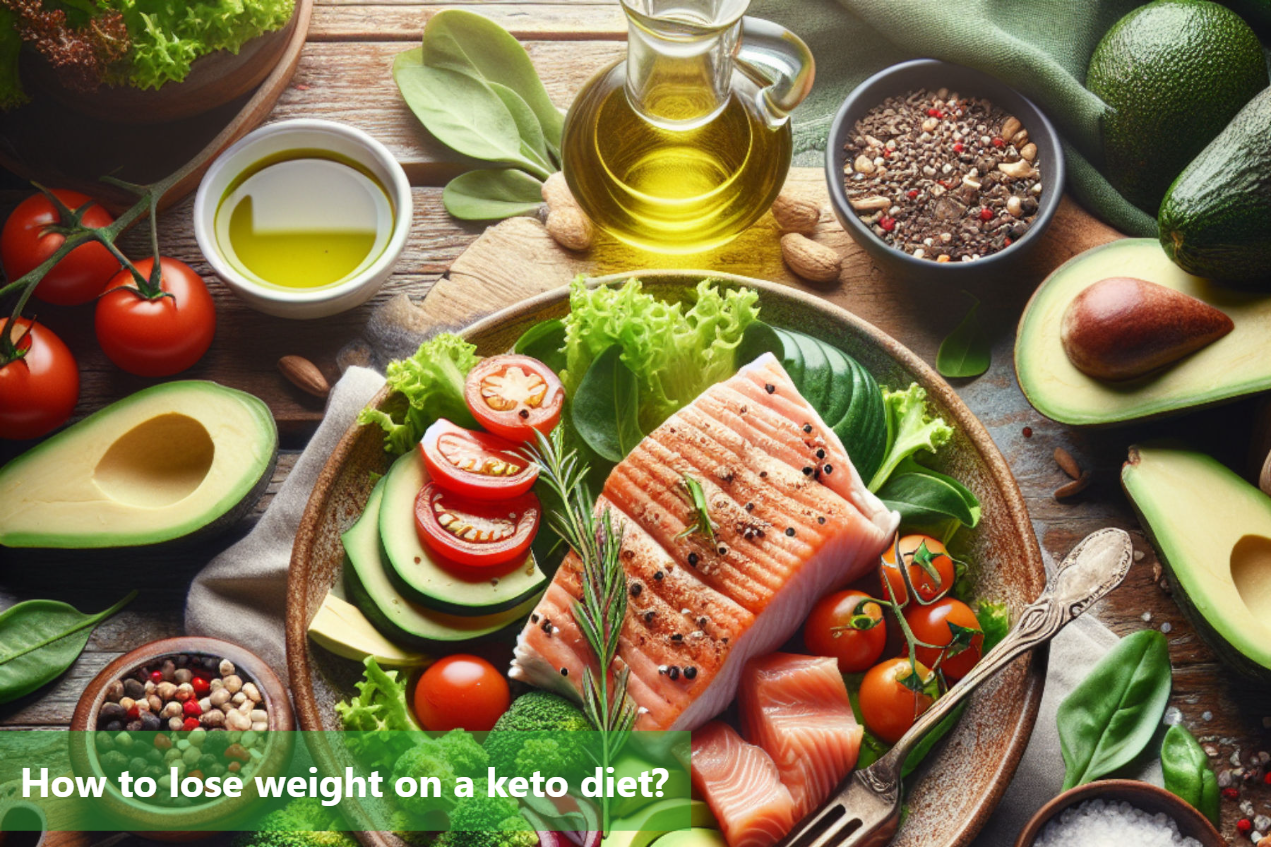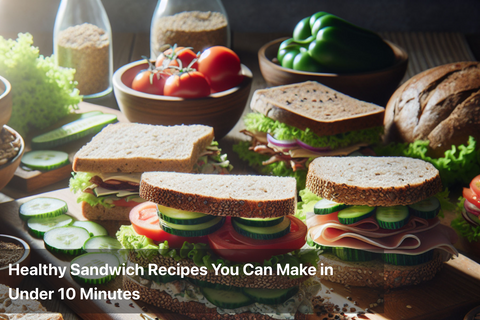
How to lose weight on a Keto diet?
How to lose weight on a Keto diet?
The ketogenic diet, commonly known as the keto diet, is a high-fat, low-carbohydrate eating plan that can be incredibly effective for weight loss. Following the keto diet has resulted in significant weight loss for many individuals. Individuals can effectively burn fat and achieve this by consuming fat-rich foods and limiting carbs. The keto diet also helps regulate blood sugar levels and improve overall energy levels.
Those looking to lose weight on the keto diet should pay attention to their macronutrient intake, ensuring they consume adequate fats, moderate protein, and minimal carbs. Following a well-structured meal plan and staying consistent is crucial to see the desired results. Dedication and proper guidance make the keto diet a powerful tool for achieving weight loss success.
Getting Started with the Keto Diet
The keto diet involves consuming foods high in fat, moderate in protein, and low in carbohydrates. This approach aims to switch your body to ketosis, which burns fat for fuel instead of carbohydrates. These are the key focus areas to keep in mind:
- Limit Carbohydrate Intake: Aim to consume less than 50 grams of carbs per day, with some versions of the keto diet recommending as low as 20-30 grams.
- Increase Healthy Fats: Embrace healthy fats such as avocados, nuts, seeds, olive oil, and fatty fish to provide most of your daily calorie intake. These fats will keep you feeling full and satisfied while supporting ketosis.
- Moderate Protein Consumption: While protein is essential for muscle maintenance and repair, it's crucial not to overconsume it on the keto diet. Aim for less than 1.2-2 grams of protein per kg of body weight intake to avoid potentially disrupting ketosis.
- Stay Hydrated: Ensure you drink plenty of water throughout the day and consider adding electrolytes to prevent dehydration and maintain energy levels.
- Track Your Macros: Track your macronutrient intake and adjust as needed. Various apps and online tools help you monitor your fat, protein, and carb ratios.
- Incorporate Low-Carb Vegetables: While the keto diet limits carb intake, you must include low-carb vegetables such as leafy greens, broccoli, and cauliflower. These veggies provide essential nutrients and fibre.
- Be Mindful of Hidden Carbs: Be cautious of hidden carbs in sauces, condiments, and processed foods. Please always read labels carefully to avoid unintentionally consuming sugars or starches.
- Listen to Your Body: Everyone responds differently to the keto diet. Pay attention to how your body feels and adjust your food choices to support your weight loss goals.
Remember, Consistency and dedication are crucial to achieving sustainable weight loss goals while following the keto diet. By focusing on the critical areas mentioned above and maintaining a balanced approach, you can optimise your chances of successful weight loss on the keto diet.
Sample Keto Diet Plan
Meal |
Option |
Dish |
Calories |
Carbs (g) |
Protein (g) |
Fat (g) |
|---|---|---|---|---|---|---|
Breakfast |
Vegan |
Avocado and spinach salad with olive oil dressing |
250 |
5 |
3 |
20 |
|
Non-Vegan |
Scrambled eggs with sautéed mushrooms and avocado slices |
300 |
3 |
15 |
25 |
Lunch |
Vegan |
Cauliflower rice stir-fry with tofu and mixed vegetables |
280 |
10 |
12 |
18 |
|
Non-Vegan |
Grilled chicken breast with broccoli and a side salad with olive oil dressing |
320 |
5 |
25 |
22 |
Dinner |
Vegan |
Zucchini noodles with dairy-free pesto and cherry tomatoes |
260 |
8 |
5 |
21 |
|
Non-Vegan |
Baked salmon with asparagus and a mixed green salad with avocado |
350 |
7 |
20 |
28 |
Total |
|
|
1760 |
38 |
85 |
134 |
This sample keto diet plan focuses on high-fat, moderate-protein, and low-carb foods to induce and maintain ketosis. It provides essential nutrients while keeping carbohydrate intake low. The plan supports weight loss by promoting fat-burning for energy and reducing overall calorie consumption. Always consult a healthcare provider or a nutritionist before starting any new diet plan, especially if you have existing health conditions.
Following a structured keto diet plan like this, incorporating variety and balance, you can optimise your weight loss journey while enjoying delicious and satisfying meals.
Keto Weight Loss Optimisation
- Track your calories: Maintain a calorie deficit to encourage your body to burn stored fat for energy.
- Consider intermittent fasting: This eating pattern can regulate insulin, boost fat burning, and improve metabolic health.
- Stay hydrated: Drinking enough water helps suppress appetite, improves metabolism, and supports overall health.
- Consistency is vital: Maintain your keto lifestyle and implement these strategies for long-term success
Overcoming Common Challenges on the Keto Diet
- Social Situations: It can be challenging to stick to a ketogenic diet when socialising with friends or family who do not follow the same eating habits.
- Carb Cravings: Craving high-carb foods, especially when starting a keto diet, can be challenging.
- Meal Planning: Planning meals high in fat, moderate in protein, and low in carbs requires careful consideration and can be time-consuming.
- Limited Food Choices: The restrictive nature of the ketogenic diet can make it challenging to find variety in meals and snacks.
- Keto Flu: Transitioning to a keto diet can lead to symptoms like fatigue, headaches, and irritability, known as the keto flu, which can be a hurdle to overcome.
- Sustainability: Some individuals may find it challenging to maintain a strict ketogenic diet in the long run due to its restrictions and potential social implications.
By proactively addressing these challenges, you can stay focused and continue progressing towards your weight loss objectives on the keto diet.

Embrace the Keto Journey:
The keto journey promises significant weight loss but requires commitment and understanding. By prioritising high-fat, moderate protein, and low-carb meals, you can unlock the fat-burning potential of ketosis and experience rapid weight loss.
However, the key to lasting success lies in dedication and consistency. Track your progress, adjust your approach as needed, and stay motivated by celebrating your achievements. Remember, every step forward contributes to your ultimate goal: a healthier and happier you. Embrace a positive mindset and embark on the keto journey with confidence!
This Blog post is an initiative by Lo! Foods, to provide accurate and Nutritionist / Doctor approved information related to Health. Lo! Foods is India's leading brand for Everyday Functional Foods. Foods designed for specific Health conditions or Needs. Lo! Foods also runs India's largest range of Low Carb Healthy Cloud Kitchens, under the brand names of Lo!, ProteinChef, ATH (All Things Healthy) and DiabeSmart.












Leave a comment
Your email address will not be published.